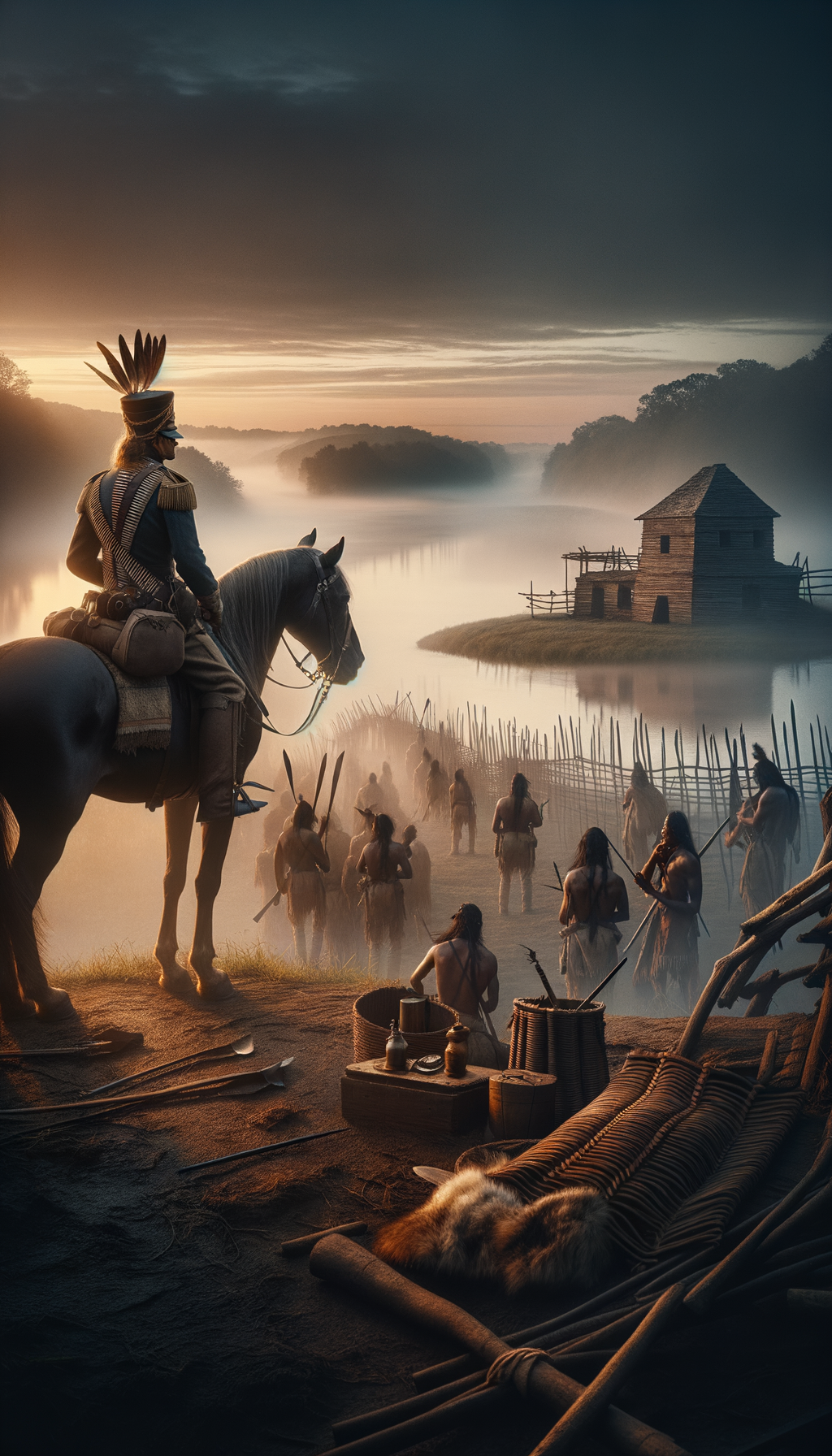United States – The Roar of Victory at Horseshoe Bend – March 27, 1814
TLDR;
- Event: On March 27, 1814, General Andrew Jackson led American forces to a decisive victory against the Red Stick Creek warriors at the Battle of Horseshoe Bend in Alabama, near the Tallapoosa River.
- Impact: The battle resulted in over 800 Creek casualties and effectively ended the Creek War, weakening the Red Sticks’ resistance against American expansion.
- Consequences: The victory led to the Treaty of Fort Jackson on August 9, 1814, which forced the Creek Nation to cede approximately 23 million acres (9.3 million hectares) of land to the United States.
- Legacy: Andrew Jackson’s reputation was significantly enhanced, contributing to his later rise to the presidency, while the battle remains a poignant reminder of the costs of territorial expansion.
–
Story
The air was thick with tension as General Andrew Jackson surveyed the bend in the Tallapoosa River. The morning sun glinted off the water, casting long shadows over the fortified village of Tohopeka. Inside, the Red Stick Creek warriors prepared for a fight to the death, aware of the high stakes and the possibility of a decisive battle.

The War of 1812 had spread its tendrils into the American South, igniting the Creek War. The Red Sticks, a faction of the Creek Nation, had risen against American expansion, determined to protect their lands. But on March 27, 1814, they faced a formidable opponent in Andrew Jackson, a man whose resolve was as unyielding as the river’s current.
Jackson’s strategy was bold. He split his forces, sending a contingent to cross the river and attack from the rear while he led the main assault head-on. The Red Sticks fought fiercely, their war cries echoing through the trees, but they were outmatched. The American forces, bolstered by Cherokee allies, pressed forward relentlessly.
The turning point came when Jackson’s men breached the barricade, unleashing a torrent of gunfire and bayonets. The Red Sticks, trapped in the bend, fought valiantly but were overwhelmed. By day’s end, over 800 Creek warriors lay dead, and the power of the Red Sticks was broken.
The victory at Horseshoe Bend was decisive. It not only ended the Creek War but also paved the way for the Treaty of Fort Jackson, which was signed several months later on August 9, 1814, ceding vast tracts of Creek land to the United States. Jackson emerged as a national hero, his national reputation significantly enhanced, though his path to the presidency involved many other factors and events over the following years. The echoes of that battle still resonate today, a reminder of the relentless march of history and the cost of expansion.
–
| Would a different strategy by the Red Sticks have changed the outcome of the battle? |